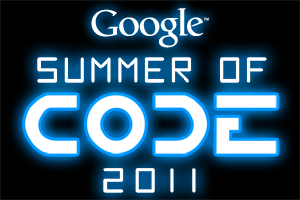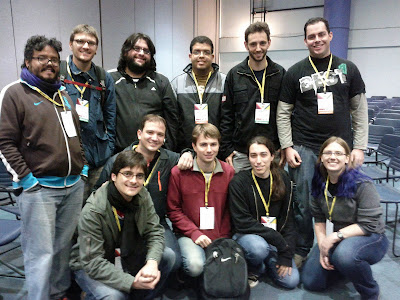
The 12th annual Debian Developers Conference (called DebConf) took place last week in the city of Banja Luka (Бања Лука) in Republika Srpska (Република Српска) in Bosnia and Herzegovina (Босна и Херцеговина). On Sunday July 24th, the conference began with DebianDay, a conference day aimed at a wider, local audience. It featured talks including “Understanding Debian” presented by our very own Bdale Garbee and “Debian in Enterprise: A Google Case Study”, presented by Googlers Jesus Climent and Guido Trotter. DebianDay was a great success, not only bringing the Debian Community closer to local contributors, but also by catching the interest of the general population as has never happened before.

DebianDay (cc-by-2.0 aigarius)
The opening ceremony was not only attended by Jasmin Komic, the Minister of Science and Technology, but also by Aleksandar Džombic, the Prime Minister. In a moving speech, Milorad Dodik, the President of Republika Srpska told the audience that he is proud to see that Banja Luka and Republika Srpska were successful in their quest to host DebConf11, as there was some fierce competition to host the event.
DebConf continued through July 31 and featured a 78 session program (not including spontaneous "ad hoc" sessions) which included talks and workshops on Multiarch, ports to new architectures, and better collaboration with derivative distributions, as well as an extensive social program. Over 400 participants from 50 countries attended this year’s conference.
Also this year, we selected two students from the
Google Summer of Code program in the Debian project to go to Banja Luka to present talks, receive feedback on their projects, gather new ideas, and establish relationships with fellow developers.

Google Summer of Code students and mentors,
(top) Piotr Ożarowski, Ana Guerrero, Sukhbir Singh, Tom Marble,
(bottom) Samuel Thibault, Sylvestre Ledru, Obey Arthur Liu, Guillaume Mazoyer, Wookey
(cc-by-2.0 Obey Arthur Liu)
DebConf 11 was the first major open source event I have ever attended. It is really great to meet people I speak with every day. DebConf is really a wonderful experience where we can talk about a lot of interesting things like what Debian is, how Debian works and we also have a lot of fun. I met our Google Summer of Code organization administrators and talked about what we can do to make it rock. I was also pleased to meet my mentors, Tom Marble and Sylvestre Ledru, to get to know them better and work on our project. I also gave a talk (video) about the progress of my project on July 30th at DebConf to show the community what I have accomplished so far this summer in the program.
Last week was a busy one since I tried to make some progress on my project and to attend talks which could help me to resolve some issues I am having with my project. Before this year’s Google Summer of Code I was already involved in Debian, so attending DebConf and meeting people who love their universal operating system, encourages me to stay in this community for a while because we are doing great things and we learn a lot along the way.
By Guillaume Mazoyer, Debian Google Summer of Code student
-----
Meeting people in real life has always been better than email/IRC and this fact was exemplified at DebConf this year because not only did I get to meet my mentor but I was also able to interact with people from the Debian community. Yay!
DebConf proved to be an even more wonderful experience than I had imagined -- you learn and discuss about the operating system you love and use everyday, you meet new people, make new friends and you get to try out new food!
I discussed with my mentor, Andreas Tille, how we could make my Google Summer of Code project better. We had a talk (video) about the project on July 29th to gather ideas and feedback from the community; we aim to incorporate the ideas from the talk into our project. After seeing the love and passion here for Debian, I will most certainly be sticking around after the summer and be a part of the community, aiming to contribute and give back to all that it has given us. A heartfelt thanks to the people of Banja Luka and the local team for having us here, they have not only made the conference possible but have amicably welcomed us to this beautiful city. Debian is indeed truly, the universal operating system and DebConf is the testament to this.
By Sukhbir Singh

Group Picture (cc-by-2.0 aigarius)
The Google Summer of Code has been a success for Debian each of the past six years we have participated, and Debian looks forward to welcoming more students to Debian and DebConf.
See you in 2012 at DebConf12, being held in Managua, Nicaragua!
By Obey Arthur Liu, Guillaume Mazoyer & Sukhbir Singh









